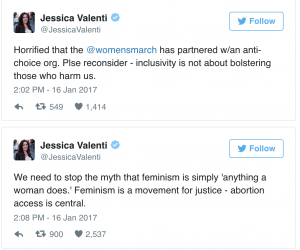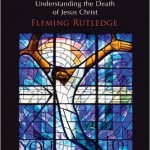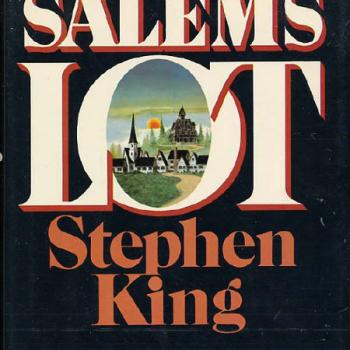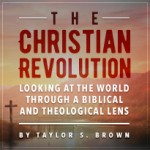
I have a tendency to say things that confuse people. I identify as an evangelical Christian (though, in the wake of the presidential election, I’ve had to qualify that quite a bit, usually in the form of saying I am a “classical” or “N. T. Wright-style evangelical;” but I digress), while at the same time defending what are often considered to be “liberal” social causes, such as Black Lives Matter. I even wrote a whole defense of why I did not vote for Donald Trump as an evangelical. In the theological sphere I consider myself a fairly staunch defender of “conservative” doctrines such as substitutionary atonement (even the dreaded penal substitutionary variety) while at the same time being staunchly Wesleyan-Arminian, a theological camp that often (wrongly) gets typecast as “liberal.” Some might say the reason for such confusion is because I am inconsistent, but in reality it is because I do not really fit that neatly into the typical, Americanized boxes of “right” and “left.” Theologically and philosophically I am quite conservative. Politically and economically, I lean right, but I sometimes veer to the left on certain issues. The culprit for this inability to fit into the typical socio-political categories of our age is that I seek, as best as I can, to be an orthodox Christian.
The latest topic that has spurred such confusion in my social circles has been the Women’s March on Washington this past weekend. Reflecting on the march and its implications stirred up mixed emotions in me. On one level, I was deeply supportive of those who marched in advocacy for women’s rights and equality. Theologically I am egalitarian and so believe that women can teach, preach, and lead in church settings. I even wrote my senior honors thesis in college on the radical nature of women’s leadership roles in the earliest, New Testament-era churches. As such, I also believe that in the public sphere women should receive the same rights to equal pay, representation, governmental leadership, etc.
On another level, however, I had some deep reservations with the March. This was not to do with the equality and advocacy aspects, but rather with the overall tone it took, particularly a somewhat ardent “pro-choice” one. As BuzzFeed News Reporter Ema O’Connor noted of the tone shift:
At first a number of anti-abortion advocacy groups, including And Then There Were None and New Wave Feminists, were approved by the Women’s March organizers to be official partners — meaning co-organizers.
However, once people on Twitter began complaining about anti-abortion groups being included, the march released a statement declaring it was “pro-choice,” and removed the anti-abortion groups from the partnership list.
Many of the anti-abortion groups who planned on going to the march told BuzzFeed News that this turn of events made them reconsider their decision, or at least the reason they were going.
Keep in mind that this is decidedly left-leaning BuzzFeed News reporting this, not National Review or the American Conservative. Indeed, other news outlets who are either moderate or somewhat center-left reported similarly. Eliza Collins of USA TODAY writes:
Before the march Kristan Hawkins, president of Students for Life, told USA TODAY the group was there “showing them that pre-born women’s rights are human rights.”
Hawkins said the group had tried to cosponsor the event but were told they could not after Planned Parenthood got involved.
Indeed, on a more anecdotal level, I saw quite a few people on social medias assert rather strongly that in order to be a feminist one must be pro-choice. Jessica Valenti, a well-known blogger and writer, went so far as to say on Twitter that in order to be feminist, one must place abortion access as a central issue:
Valenti is not alone in this sentiment, as many others have voiced similar dichotomies. One is either a feminist or one is pro-life. You cannot be both. In an article for Vox, Emily Crockett interviewed several marchers. While several were warm or at least indifferent to pro-life marchers, others took a hard line similar to Valenti:
“I see the anti-choice movement — I’ll call it ‘anti-choice,’ because I don’t think it’s even very ‘pro-life’ — as the very opposite of that core of feminism,” Mulvihill said. “I think [feminism] should accept a whole bunch of different people from diverse viewpoints. But as soon as you start trying to restrict people’s freedoms, then you are going against feminism. And hopefully, if [the people who are doing that] are meeting opposition, they will try to educate themselves about why they are meeting that opposition.”
As to whether or not the Women’s March on Washington will kickstart a new analysis of what it means to be a feminist remains to be seen. However, as it stands, only a few days after the March and its decided shift in tone toward being adamantly pro-choice, many Christian, pro-life feminists/feminist sympathizers like myself feel a bit alienated. My initial reflections were captured in a post on Facebook:
“For the record, I am 100% behind the push for increasing equality among women in the workplace and public sphere, as well as increasingly dismantling oppressive power structures.
That being said, I also agree with women like Mother Teresa that abortion is one of the most horrific evils ever perpetrated by human beings. Thus, much of the rhetoric I see surrounding the #WomensMarchOnWashington is deeply disturbing in its equation of purely unrestricted “choice” (a nice linguistic way of clinically white-washing the killing of unborn children) as synonymous with being egalitarian.
I will (and do) gladly support efforts for increased equality, representation, and protections for women. But I will never do so in a way that compromises my conviction that the voiceless unborn must be equally protected as well.”
I still stand by this statement. As such, I must disagree with voices like Valenti and others that say that one must be pro-choice in order to be a feminist. Not only is such a position extremely reductionist, but it operates on the false presupposition that if one is to advocate for justice on behalf of one voiceless/oppressed group, then another voiceless/oppressed must suffer the consequences.
I won’t go into the argumentation as to why I believe that abortion is indeed the killing of a human person (I have done so at length elsewhere). However, I will say that as a Christian, I believe it is not only possible, but actually necessary to hold together the two truths of women’s equality and the sanctity of the lives of the unborn. Both groups are composed of persons who are either voiceless or oppressed in some capacity. And that means that we as Christians (especially those of us who are straight, white male Christians) should advocate on behalf of both women and the unborn.
As the eminent preacher and theologian Fleming Rutledge writes in her excellent book, The Crucifixion:
“To understand the radicality of the gospel, it is necessary to realize that God is on the side of the defenseless, whoever they are. If a victorious revolutionary turns on the oppressor, then the former oppressor has suddenly become the defenseless one toward whom God declares his partisanship.” (p. 144)
“God is on the side of the defenseless.” This truth is disconcerting for many Christians who live in a state of extreme privilege. This is because we realize that instead of using our social power to advocate for the defenseless we have instead used it for largely selfish ends. For someone like myself—straight, white, and male—this realization spurs me on to imitate Christ by using my social power to speak on behalf of those who are defenseless. That means speaking on behalf of both women and the unborn.
And so I (and many like me) exist in a state that is baffling to many in our staunchly bipartisan world. I am a Christian who believes that women are made in the image of God and deserve to be treated as such, both in the Church and outside of it. I am a Christian who believes that human life begins at conception and that the voiceless unborn should be protected at all costs. To some, these positions may seem incommensurable. I humbly submit that, by the power of the Crucified and Risen One, they are not.
This post is already too long, but I want to end with a story.
During my freshman year of college I was dealing with the jarring transition of going from a tiny Christian high school (my graduating class was a whopping 35 students) to a major state university of some 20,000 people. In the midst of wrestling through many issues of community and identity (you know who you are in a class of 35; in a school of thousands you feel like a small cog in a big machine), I prayed that God would not let me forget the plight of the world’s voiceless. Quite literally by God’s grace (because as a college freshman I did not have the wisdom on my own) I saw how the luxuries and wiles of the world could potentially lure me away from caring and speaking for others. In college in particular, women, social status, academic prestige, and other careless pleasures were the greatest temptations when it came to swaying my allegiances. Of course I knew that many of these were goods in themselves. But I also knew that if left unchecked, my passions could easily turn such goods into idols and eclipse my Christian convictions.
And so I prayed. I prayed that as my Father hears the cries of the defenseless and the oppressed, I as his adopted son would also. Almost eight years later, God has continually answered that prayer. He has refused to let me become deaf to the cries of a pained world, including the cries of women and the unborn.
Can one be both staunchly for women’s equality and staunchly pro-life? I really cannot speak for those who are secular or non-believers. For me as a Christian though, I cannot do otherwise than be both.












